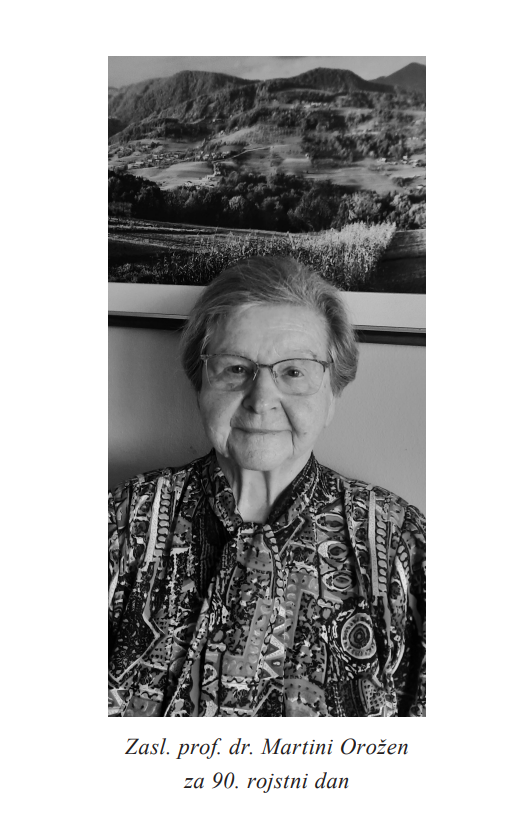Мистическая философия Востока и Запада и ее всеединство, отраженное в фильмах Андрея Тарковского
DOI:
https://doi.org/10.18690/scn.14.2.258–271.2021Ključne besede:
Andrej Tarkovski, vzhodna filozofija, zahodna mistična filozofija, religija, teozofija, celovitostPovzetek
Članek na različnih ravneh preučuje dela Tarkovskega in skuša razumeti tista njegova dela, ki temeljijo na vzhodni in zahodni religiji ter filozofiji. Analiziran je vpliv teh del na režiserjev pogled na svet. Slednjega namreč zaznamujejo tako orientalske kot tudi zahodne religije in ideje v povezavi z različnimi mističnimi in duhovnimi filozofi, med njimi Rudolfa Steinerja in Georgija Gurdzhieva. Tarkovski je preučeval knjige Gurdzhieva in Uspenskega, ki sta z uvajanjem orientalske filozofije in sistema performansa v zahodno filozofijo izvedla revolucijo v zavesti sveta. Zelo ga je zanimala tudi Steinerjeva filozofija oz. t. i. duhovna znanost. Laozijeve »vrline« ali elementi budistične filozofije v njegovih filmih dokazujejo, da si je prizadeval za integracijo vzhodne filozofije v zahodno.
Prenosi
Literatura
Елена Блаватская, 2010: Ключ к теософии. Избранные статьи. М.: Эксмо.
Паола Волкова, 2013: Цена Nostos – жизнь. М.: Зебра E.
Александр Гордон, 2007: Не утоливший жажды: об Андрее Тарковском. Москва: Вагриус.
Михаил Дегтярева, 2011: Два Андрея. Православие и мир. 17 июля. Дата обращения 20.05.2019: http://www.pravmir.ru/i-pri-ige-vozmozhna-vera/.
Наталия Кононенко, 2011: Андрей Тарковский: звучащий мир фильма. Москва: Прогресс-Традиция.
Леонид Нехорошев, 2012: Духовное откровение. Неизвестный Тарковский: Сталкер мирового кино. М.: Эксмо-Алгоритм. 75–122.
Дмитрий Л. Салынский, 2009: Киногерменевтика Тарковского. М.: Продюсерский центр «Квадрига».
Симонетта Сальвестрони, 2007: Фильмы Андрея Тарковского и русская духовная культура. М.: Библейско-богословский институт.
Андрей Тарковский, 1997: Мартиролог. Дневники 1970–1986 гг. Дата обращения 01.11.2018: http://www.tarkovskiy.su/texty/martirolog/martirolog.html.
Владимир Филимонов, 2011: Андрей Тарковский: сны и явь о доме. М.: Молодая гвардия.
Виктор Шитова, 2012: Путешествие к центру души. Неизвестный Тарковский: Сталкер мирового кино. М.: Эксмо-Алгоритм. 195–208.
Рудольф Штейнер, 1992: Очерк тайноведения. Ереван: Издательство «НОЙ».
– –, 2005: Полное собрание трудов. Т. GA 45. (Пер.с нем. Л.Б. Памфиловой). М.: Титурель.
Gorham MUNSON, 1950: Gurdjieff – Ouspensky – Orage: Black Sheep Philosopher. TAT Journal 9, 1–9. Дата обращения 29.08.2019: http://www.searchwithin.org/download/gurdjieff_ouspensky_orage.pdf.
Peter D. OUSPENSKY, 2001: In search of the miraculous: fragments of an unknown teaching. San Diego: Harcourt.
Jeanne SALZMANN, 1999: «Foreword» G. I. Gurdieff. Life is real only then, when ‘I am’. London, New York: Arkana. ix–xii.
Andrei TARKOVSKY, 1987: Sculpting in time: reflections on the cinema. Translated from Russian by Kitty Hunter-Blair. Austin. TX: University of Texas Press.
Prenosi
Objavljeno
Številka
Rubrika
Licenca
Avtorske pravice (c) 2021 Univerzitetna založba Univerze v Mariboru

To delo je licencirano pod Creative Commons Priznanje avtorstva-Nekomercialno 4.0 mednarodno licenco.
Avtorske pravice
Članki so objavljeni pod pogoji mednarodne licence CC BY-SA. https://creativecommons.org/licenses/by-sa/4.0/deed.sl
Plagiatorstvo
Slavia Centralis je nekomercialna in prosto dostopna mednarodna znanstvena revija. Kot taka je zavezana etičnim načelom glede zaupnosti, izvirnosti in intelektualne poštenosti. Kršenje avtorskih pravic in plagiatorstvo obravnava zelo resno, zaradi česar z ustrezno programsko opremo preverja morebitno podobnost z vsebino drugih besedil.
Avtorji morajo upoštevati naslednje:
Predloženo besedilo mora biti izvirni znanstveni članek. Vsi viri morajo biti korektno navedeni. Besedilo ne sme biti istočasno predloženo uredniški presoji drugih publikacij.
Za vključeno gradivo (citati, ilustracije, tabele ipd.) je treba pridobiti ustrezna dovoljenja, ki izhajajo iz avtorskih pravic.
Objava v reviji Slavia Centralis ne predvideva plačila.
